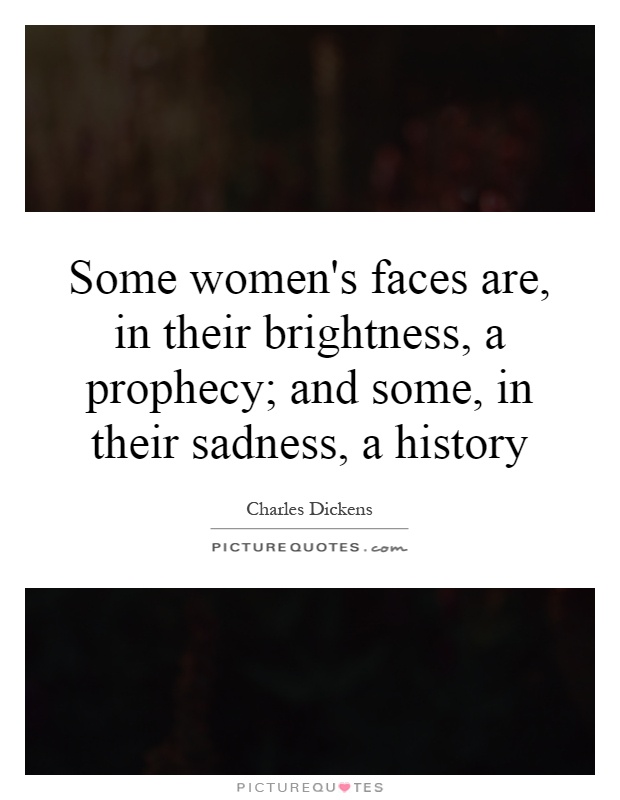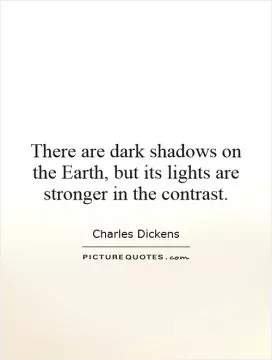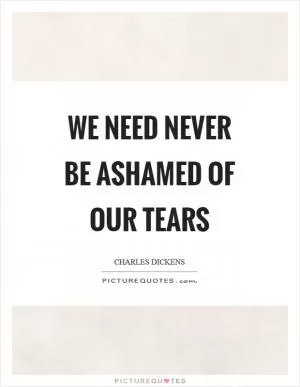Some women's faces are, in their brightness, a prophecy; and some, in their sadness, a history

Some women's faces are, in their brightness, a prophecy; and some, in their sadness, a history
Charles Dickens, the renowned Victorian novelist, was known for his keen observations of human nature and his ability to capture the complexities of the human experience in his works. In his novels, Dickens often portrayed women in a variety of roles, from the virtuous and angelic to the cunning and manipulative. The quote, “Some women's faces are, in their brightness, a prophecy; and some, in their sadness, a history,” perfectly encapsulates the way Dickens approached the portrayal of women in his writing.In many of Dickens’ works, women are depicted as symbols of hope and redemption, their faces shining with a sense of purpose and determination. Characters like Little Dorrit in “Little Dorrit” and Esther Summerson in “Bleak House” embody this idea of brightness as a prophecy. These women are often the moral compasses of the stories, guiding the other characters towards a better future and ultimately bringing about positive change in their lives.
On the other hand, Dickens also delves into the darker side of femininity, portraying women whose faces are marked by sadness and tragedy. Characters like Miss Havisham in “Great Expectations” and Madame Defarge in “A Tale of Two Cities” represent this idea of a history written on their faces. These women are haunted by their pasts, carrying with them the weight of their own personal struggles and the injustices they have faced.
Through his nuanced portrayal of women, Dickens challenges traditional gender roles and stereotypes, presenting a more complex and multifaceted view of femininity. He recognizes that women are not simply one-dimensional characters, but rather individuals with their own hopes, dreams, and fears. By exploring the dual nature of women’s faces as both prophecies and histories, Dickens highlights the resilience and strength of the female characters in his novels.












 Friendship Quotes
Friendship Quotes Love Quotes
Love Quotes Life Quotes
Life Quotes Funny Quotes
Funny Quotes Motivational Quotes
Motivational Quotes Inspirational Quotes
Inspirational Quotes